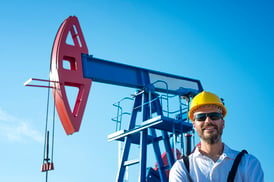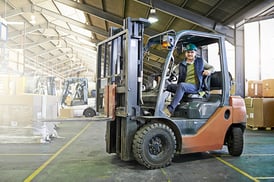
When you are looking to find an equipment appraiser who can provide a high-quality level of service, how do you know who to select? These types of valuation firms provide tangible personal property and machinery & equipment appraisal services to businesses and individuals across a broad range of markets and industries. The best of these are experienced, reliable, and communicative, while able to support their methodologies and conclusions should the need arise in any business transaction or dispute.
Here's a look at how equipment appraisal firms operate and what is required to be considered a reliable and credible business:
How Equipment Appraisal Firms Operate
Though many companies and individuals purport to be qualified equipment appraisers, only those that have gone through the proper training and education while developing a high level of experience over time can properly call themselves one. Commonly called M&E (machinery and equipment) appraisers, these companies should be able to accurately value virtually any tangible piece of property that would not be considered real estate (land and buildings).
High-quality M&E appraisers have a strong understanding of the variety of situations where appraisal services are required, including litigation, finance and leasing, tax appeals, risk management, insurance, buy/sell, merger & acquisition (M&A), accounting, donations, and any other situation. When that understanding is combined with their accredited expertise you have found a firm well worth your consideration.
Independence and Lack of Bias
Why is hiring an M&E appraisal firm a better choice than engaging a company that performs appraisals as part of a dealership, auction company, or similar business where sales is also a component of the operation?
One of the biggest factors to take into consideration is complete independence of anything else that may be going on in the overall business transaction for which the appraisal is needed. An independent machinery & equipment valuation firm should perform appraisal work and nothing more. If the company you hire is also involved in buying and selling equipment or investing in businesses that do so, they will potentially have a secondary agenda that would create some bias and lack of independence in estimating value.
Proper Education, Experience, and Accreditation
Highly qualified appraisers go through a rigorous process of education and testing while being required to have a minimum level of experience before they can be called an accredited M&E appraiser. This ensures they will use the appropriate methodologies and techniques when appraising your machinery & equipment. The most highly recognized organization that provides this level of training is the American Society of Appraisers (ASA). Other, more specialized groups also have educational and training requirements that can provide some of this experience, however, the ASA accreditation is the most highly sought-after title for any true appraiser.
Should the need arise where the appraisal report may be reviewed or entered into court in support of a business dispute, this accreditation will be an important qualification as well as the overall experience of the appraiser.
In summary, Equipment Appraisal Services hires only ASA accredited valuers as part of our organization. We look forward to speaking with you further when the need arises to have an independent tangible personal property or M&E appraisal completed for your business.





